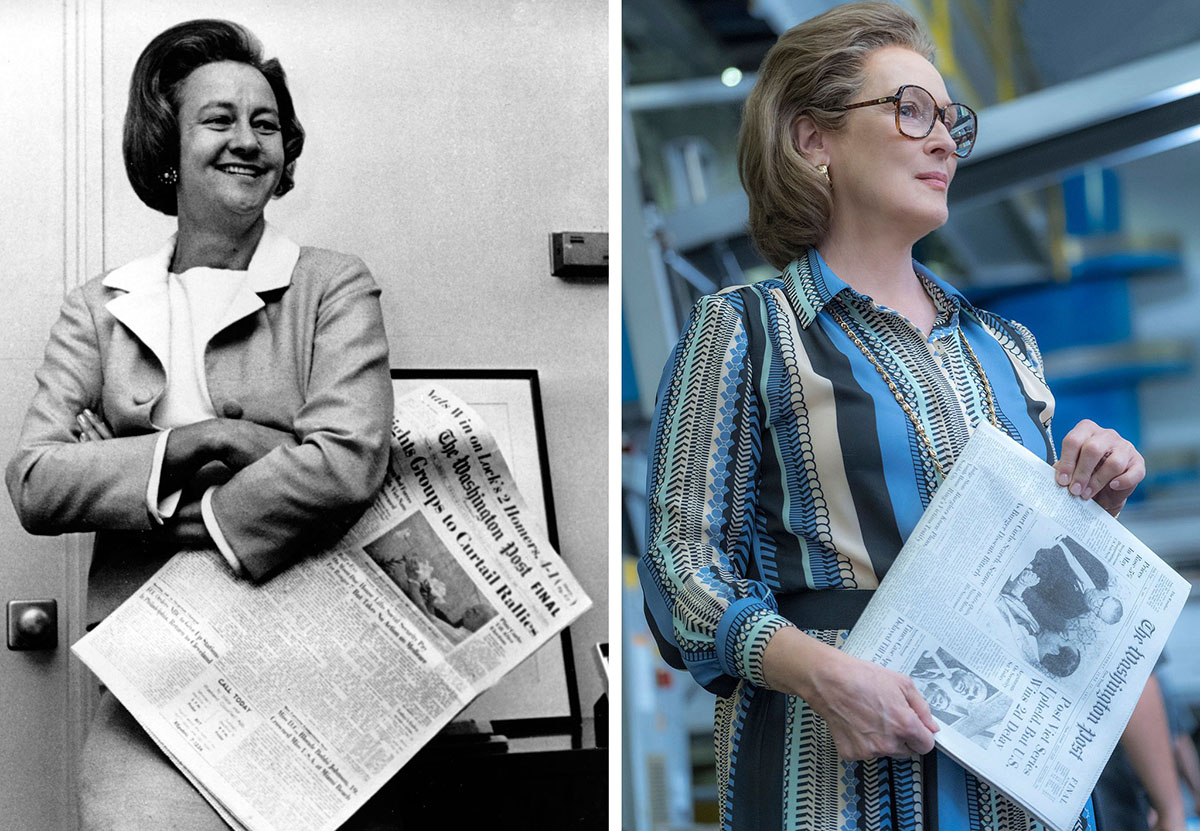
REVIEW: The truth about ‘The Post’
If you have not had the chance to go see the latest movie “The Post,” starring Meryl Streep and Tom Hanks, about The Washington Post and the Pentagon Papers, you should definitely check it out.
Set in 1971, “The Post” is about Katharine Graham, the publisher, and Ben Bradlee, editor of the Washington Post, as they try to compete with The New York Times in releasing the top-secret government information leaked about the war in Vietnam that proved the government had been lying to the American people for years. The movie gives one a look into the ethics versus the business side of journalism as Graham tries to decide between doing what is right and risking her company.
However, as great of a movie as “The Post” is, I could not help but think of The New York Times and wondered why they were not given more credit for helping to bring the story to light. I realize this is a movie specifically about The Washington Post and Katharine Graham, but I believe both newspapers deserve credit because it was not until The New York Times was ordered by the courts to no longer publish the papers that The Washington Post stepped in. Although I do give The Washing Post credit for running articles about the papers, even with the foreknowledge of potentially being criminally charged, the fact remains; The New York Times published about the papers first.
Daniel Ellsberg, the whistleblower who helped in the studies later known as the Pentagon Papers, originally leaked and delivered the information to The New York Times. After The New York Times was court ordered to stop publishing the papers, Ellsberg reached out to Ben Bagdikian, The Washington Post’s assistant managing editor for national news, as well as 20 other newspapers. Bagdikian flew to Boston to meet with Ellsberg and to pick up a copy of the Pentagon Papers. Once the decision to publish was made, it became a race against the clock to publish the papers. The Washington Post wanted to let the American people know of the lies they had been told over the years from the government before they were ordered to stop, as The New York Times had been told. The decision to publish ultimately rested with socialite turned publisher Katharine Graham.
With today’s society and the #TimesUp movement gathering momentum and strength, it is no surprise that Hollywood wanted to shed some light on Katharine Graham, whom Meryl Streep portrays in the film. Graham was the first female publisher of a major American newspaper during a time where many women did not have jobs.

Graham’s father was the creator of The Washington Post and when he passed away, he left the company to her husband instead of her. It was not until her husband passed away that she was put in charge of the company. At the beginning of the film, Graham is almost always being questioned on whether she is fit to run the newspaper based on the fact that she is a woman. The men speak over her, and she overhears a group of board members as they not-so-quietly discuss how she is unfit to run the company because she is a woman. They believe she will be the end of The Washington Post. Graham undergoes a strong character development as she has to decide on if she wants to publish the Pentagon Papers and what she is willing to risk.
Graham begins to find her voice and finally uses it in the end by deciding to do what is right and tell her board members that if they are not going to support her, she will find new board members. Graham is nothing short of inspirational, and the film will have females leaving the movie theater feeling empowered.
The New York Times won the Pulitzer Prize for public service in 1972 for its publication of the Pentagon Papers. The Washington Post went on to win the Pulitzer Prize for public service the following year in 1973 for their investigation of the Watergate case. The joint lawsuit against The New York Times and The Washington Post was decided in the newspaper’s favor – the newspapers were operating within their rights under the First Amendment.
If you missed “The Post” at the movie theater, the Film and Speaker Series hosted by UHCL will be showing “The Post” on Saturday, March 24, at 7 p.m., in the SSCB Lecture Hall. The event is free with a UHCL Student ID and $4 for everyone else. Parking will be free for the event. The speaker has yet to be announced.
